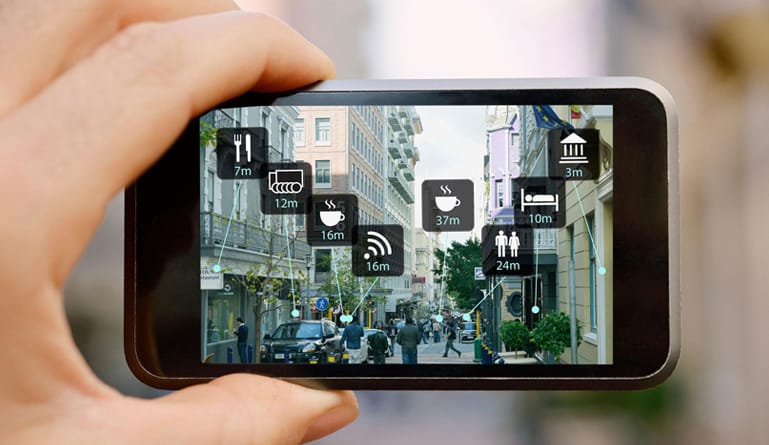Can your business benefit from AR and VR technology?
Find out how AR and VR as emerging technologies might affect your business.
Augmented reality (AR) and virtual reality (VR) are buzz words that continue to get a lot of attention in tech news. While the complete business-related benefits of AR and VR as emerging technologies aren’t clear yet, companies have already started applying these technologies in certain areas to see if they can enhance their marketing or business development efforts.
The Difference Between AR and VR
The technologies are slightly different, so their business uses will vary. AR is used by apps run in smartphones and tablets. The device’s camera shows a view of whatever environment the camera sees (reality) and the app applies a layer of data, like an image, into that environment. VR puts a user in an entirely simulated environment, using existing data like photography and video. It also lets you look around and experience that reality in every direction.
Both technologies offer innovative ways for companies to engage with their customers and clients and create more personalized experiences. Here are some of the ways that AR and VR tech are working to benefit some of today’s businesses.
How AR and VR Technology Can Directly Benefit Your Business
Augmented Reality Applications
Some businesses have found that augmented reality apps can help drive their marketing efforts. Some furniture companies have developed technology that allows consumers to see a piece of furniture, like a desk or bed, to scale in their own space, just by using the company’s AR app and the users phone or tablet. Some cosmetics companies use AR apps similarly, showing a user how their makeup or beauty products would look on a user’s actual face. This can help a user decide on a product and help them overcome any hesitation on larger or more expensive purchases
Virtual Reality Technology
Some of the biggest companies using VR right now are gaming organizations, as VR can essentially function as another sort of gaming platform or experience. But other businesses are getting in on the technology, too. Events and leisure companies are joining the ranks of marketing with VR. Six Flags debuted a VR rollercoaster (making users even more excited to ride the real thing), while LiveNation created a VR app that allowed users to stream and experience concerts through their VR headset (generating revenue similar to the way event tickets do, plus generating more interest in actual in-person events). Travel companies have developed VR technology to offer users an immersive sneak-peek of the vacation and travel experiences they organize and sell.
AR and VR as emerging technologies are still being explored and their influence on business isn’t certain yet, but it’s interesting to see how some companies have chosen to implement these new technologies into their strategies and how these technologies work seamlessly with certain types of industries.
Do you think that AR and VR can only be successfully implemented in certain business sectors? Has your business tried any augmented reality technology or virtual reality apps yet? Or do you think businesses need to know if AR technology is more than a tech trend before investing their resources?





